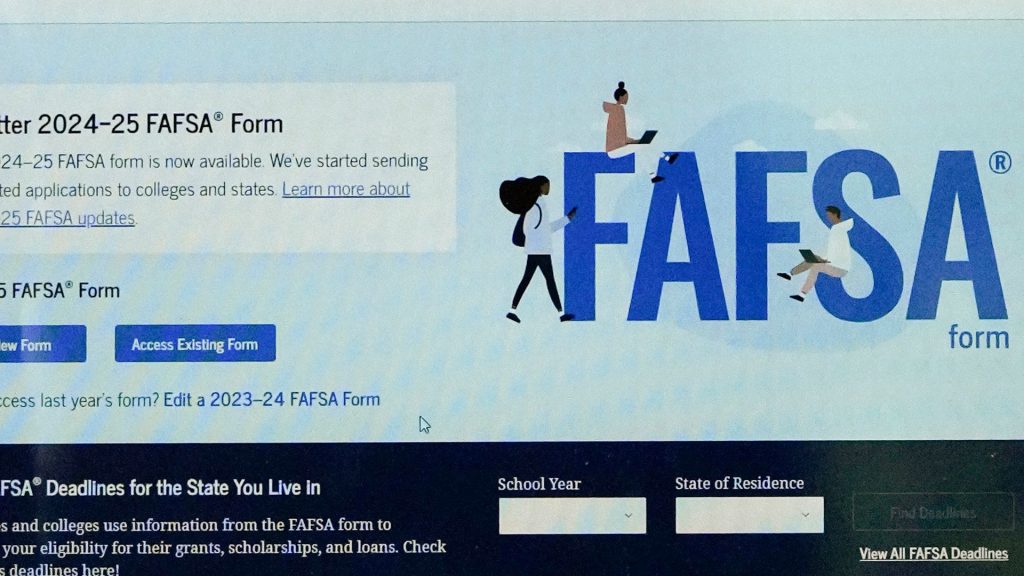Teachers union sues to shield forgiven student loan borrowers from tax hit

A national teachers union is seeking to expand a lawsuit against the U.S. Department of Education over some student loan borrowers potentially facing a hefty tax bill. That’s because of a law set to expire at the end of this year.
American Federation of Teachers lawsuit
The American Federation of Teachers filed its suit in March but is now seeking class action status.
The union has around 1.8 million members. They claim the Trump administration is denying borrowers access to student loan forgiveness programs, including income-driven repayment programs.
They also said the administration is withholding cancellations ahead of the expiration of the American Rescue Plan Act, forcing borrowers to face an “enormous tax liability.”
American Rescue Plan Act of 2021
The American Rescue Plan Act of 2021 shielded all student loan forgiveness from taxation at the federal level. That law expires on December 31, 2025, and was not extended by the Trump administration.
“I was very disappointed, but not necessarily surprised, that this Congress didn’t extend the tax moratorium,” Betsy Mayotte, President of the Institute of Student Loan Advisors, told Straight Arrow News. I do hope that a future Congress realizes the impact of taxing this liability and changes their mind in the future, but there’s no guarantee that they’re going to.”
That means if you get your student loans forgiven before the year ends, you won’t face any taxes.
For those who get their loans forgiven next year, a tax bill will come depending on why you had the loans forgiven. It mostly applies to people on income-driven repayment plans.
“If you get federal student loan forgiveness due to public service loan forgiveness, or if the loans are discharged due to death or permanent disability, that’s not taxed,” Mayotte said.
Cost of taxes
If you are one of the people facing a possible tax bill from loan forgiveness, how big a check will you be writing to the IRS?
“We tell people to generally estimate 20 cents on the dollar,” Mayotte said.
For example, someone who gets $60,000 in loans forgiven will get a tax bill for around $10,000. Average student loan debt is currently around $42,000.
Debt relief predominantly comes to borrowers with below-median incomes, meaning that kind of tax bill will be especially tough for people on those income-driven repayment plans.
“Forgiveness under the income-driven plans doesn’t happen until you’ve been on the plan for 20 or 25 years,” Mayotte said. “So, someone who maybe had a $0 payment for most or all of that time, it means that you know their income. They’re not swimming in money.”
For people who cannot pay off their tax debt, the IRS does offer some solutions to help, but none of which include full forgiveness.
Several states also levy taxes on student loan forgiveness. More will likely follow suit next year because they conform to the federal tax code.
Despite that, the cost of that tax bill will still be lower than your student debt.
“You’re still paying less than what you would have if this and income-based forgiveness didn’t exist,” Mayotte said.
Loan education
A recent study showed that 72% of student loan borrowers are unaware of their options when it comes to student loan repayment and forgiveness.
“While the information is out there and actually given to borrowers, we don’t give it at the right time,” Mayotte said. “And it’s all about providing the right information at the right time.”
Borrowers are given what’s called student loan entrance counseling. Every student who gets a loan must go through that program where they get the information, which is also in their promissory note.
But Mayotte stresses that flooding 17-year-olds with that information may not work.
“Who reads all the things?” Mayotte said. “Nobody reads all the things. And you know, even if you do read all the things, retaining that information is near impossible.”
And even if students did read everything, by the time they’re done with entrance counseling, it’s probably too late to change anything anyway.
“At that point, you’ve already chosen your school, you’ve moved into your dorm room, you’ve hung your – and I’m about to date myself – you’ve hung your REM posters on the wall already,” Mayotte said. “Nothing you’re going to learn in entrance counseling is going to make you change your mind on your college decision. It’s too late at that point.”
Once graduation day comes, it’s time for exit counseling, but the timing there isn’t ideal either, according to Mayotte.
“They’re doing their finals, they’re figuring out where they’re going to live after college,” Mayotte said. “They’re trying to find a job. They’re finishing off the last keg, again, I just dated myself, but they’re not due for a payment for another six or seven or eight months.”
She said there are better ways to relay the necessary information.
“We should be doing entrance counseling at the time they first fill out the FAFSA, and we should be doing exit counseling like 45 or 60 days before their first payment is due,” Mayotte said.
Effect on the economy
Helping the 42 million Americans with $1.6 trillion in student loan debt can help the U.S. economy, according to several studies.
“There’s definitely a butterfly effect with student loan debt on the rest of the economy, especially in high cost-of-living areas, because, sure, there’s lower payment options, but none of them take high cost-of-living areas into account,” Mayotte said.
Mayotte added there’s actually a bigger issue at the heart of it all.
“Student loan debt is the symptom of the problem,” Mayotte said. “The problem is the cost of education.”
The average cost of tuition is now nearly 200% higher than it was in 1963 and 37% higher in just the last 15 years.
The post Teachers union sues to shield forgiven student loan borrowers from tax hit appeared first on Straight Arrow News.





